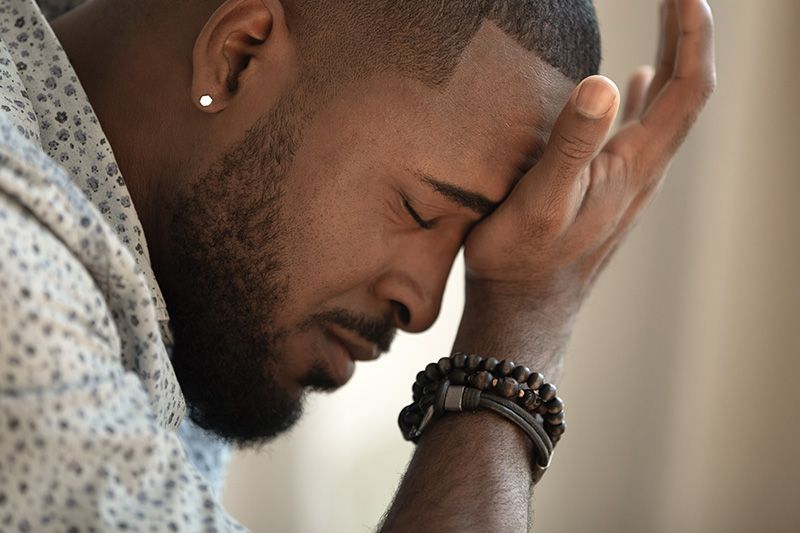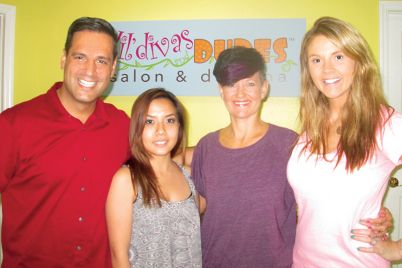BY SOPHIE OJDANIC, Neighborhood News Bureau
ST. PETERSBURG — A simple Google search returns only two mental health centers in St. Petersburg’s predominantly Black neighborhoods. Widely advertised mental health centers in St. Petersburg, however, are primarily north of Central Avenue.
One of those centers that come up is Suncoast Center on Central Avenue. Its website said the funding comes from eight groups, including the Florida Department of Children and Families and Pinellas County.
Steven Effler, the owner of U Do Matter Counseling Services, a mental health service provider based in Brandon, said that some locations in communities of color are state-funded.
“[State-funded organizations are] probably taking money from the state to quote unquote, ‘help rehabilitate,’” Effler said. “And those services have historically not always been the most suitable environment to see lasting change.
“Most of those environments are more or less imposed by legal ramifications, and other factors that would force someone to seek mental health care against their will.”
This includes cases where mental health treatment is legally mandated.
However, cases where people of color may require mental health services may be increasing.
When police kill unarmed Black people, there’s an extra two-day mental health toll for African Americans, according to a survey of 100,000 Americans by the University of Pennsylvania, Boston University and Harvard University. This is not present in white Americans or when armed Black people are killed by police.
Effler said he saw clients coming in who were affected by these shootings.
“There have been definite individuals expressing higher degrees of anxiety, depression and other social phobias,” Effler explained. He said people didn’t want to leave their house for fear of being shot.
“It’s pretty straightforward,” Effler said. “And there’s a lot of anxiety that goes along with that. Unless an individual deals with that personally, it’s hard for anyone to really, to really be able to empathize because you just don’t know what it’s like.”
Effler said the best way he could help was to offer coping strategies.
“[It’s] a lot of expressing some coping strategies that an individual can use,” Effler said. “But, what kind of coping strategy can you give someone to make them not fear for their life? If they don’t feel they have sufficient security? Or feel like they’re being viewed as a human being like anyone else?”
Dr. Karla Sapp, a mental health counselor, offers mental health services in both Florida and Georgia.
Sapp also saw changes in mental health after the shootings of unarmed Black men.
“What you will find is that there is a heightened state of alert; there is a sense of vigilance, at this moment, among communities of color,” Sapp said. “If we talk about it, I think you have to go back and look at it from a historical perspective.
“For a lot of people seeing it on TV was even more traumatic than it was for them to hear about it … So racial trauma has become real … There comes a higher alert, a higher state of alertness and awareness.”
Sapp used the example of Breonna Taylor’s death in her home as a source of trauma that could affect the community.
“It’s one thing for it to happen out in public, in the street, where people can video record,” Sapp said. “It’s another thing for it to happen in my house. And I’m not even sure that I can be secure in my house. And so you have people who are losing sleep over this. And that insomnia even keeps them up at night because they’re constantly trying to protect themselves.”
Sapp’s practice, U Matter Consulting, Counseling and Clinical Supervision, focuses on self-improvement.
“U Matter focuses on transforming the lives of other individuals and helping them become their best selves,” Sapp said. “And when I say best selves, I’m talking about all aspects of their self; physical, mental, emotional, occupational, social (and) spiritual.”
Sapp said her practice focuses on three things: education, empowerment and impact.
“Ultimately, my three goals for U Matter are to educate individuals regarding mental health, mental wellness; to be able to also empower them to truly work on themselves, and become the best version of them; as well as to impact my community and their communities,” Sapp said.
Effler created U Do Matter to offer support to underrepresented communities.
After serving in the military from 2000 to 2013, Effler moved to Florida to be closer to family and subsequently started U Do Matter.
Effler said his goal in starting the counseling service was “to help bring therapeutic interventions and treatment to otherwise overlooked or underserved populations.”
“Once I got in a position to help those populations, I made it my life’s work to do so,” Effler said. “So now, I have the counseling service, and I’m working with and working with other community-based agencies to try and enhance therapy and bring a better quality of life to those involved.”
Effler said his ultimate goal is to help those in need, regardless of recognition.
“I try not to get too caught up in all that bullshit about trying to be big, famous and great, and all that crap,” Effler said. “I try and maintain the focus of the organization, which is just helping all those who need help, who are otherwise overlooked or under-supported or underrepresented in a particular culture.”
Effler hopes to spread mental health awareness.
“A lot of these mental health disorders that we hear about, we know a family member or a friend has dealt with, and we know like one symptom or another symptom, that may not be a true representation of what that overall disorder represents,” Effler said.
“And the complexity of people is intense, and we have to respect people for whom and what they are, not what we think they represent.
“You know, just because when you’re depressed, you lay in the bed all day and cry, doesn’t mean that that is it … We all feel pain differently. And we need to respect one another’s journey.”
Sapp offered resources like Therapy for Black Girls and Therapy for Black Men to members of communities of color who may need mental health resources.
“Mental health is about taking care of ourselves,” Sapp said. “We are our most important assets. Make yourself a priority.”
Sophie Ojdanic is a student reporter in the Neighborhood News Bureau at the University of South Florida St. Petersburg. Visit nnbnews.com for more info.








